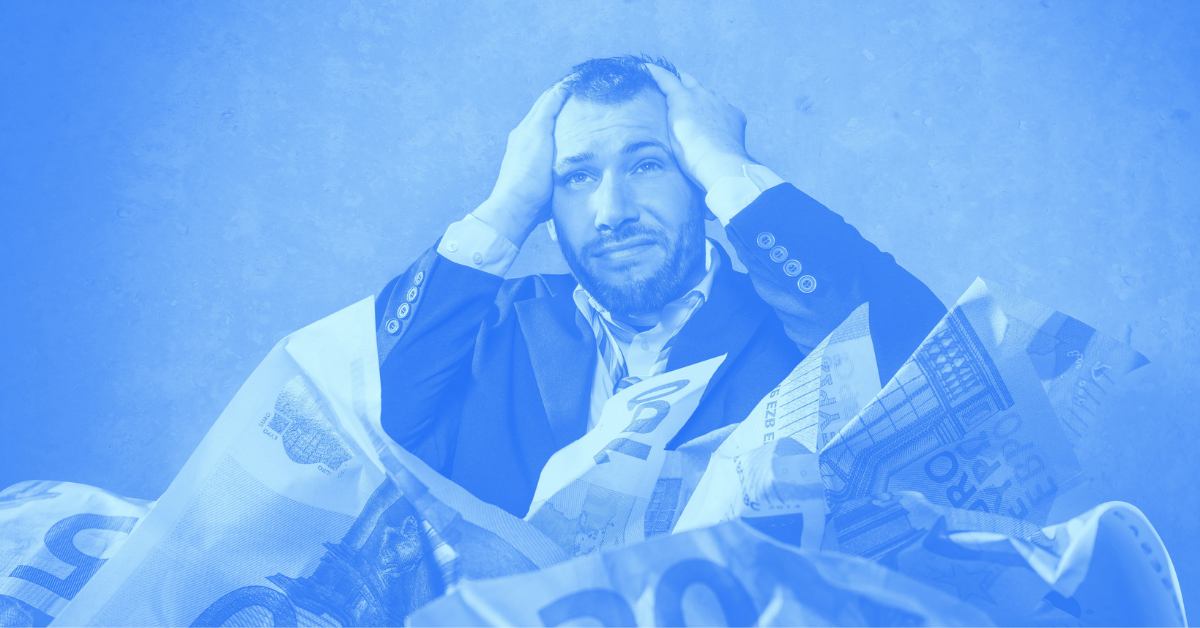Have Financial Problems? Your Self-Control May Be the Issue
Share this

Editor's note: Please welcome guest contributor Anum Yoon. Anum is a personal finance blogger who's sharing her thoughts on a common problem for many looking to get on the right track with their money.
It’s late at night and you’re working against a tight deadline. As focused as you are on your work, there are distractions everywhere that you succumb to. Maybe it’s checking Facebook quickly and then diving back into the task at hand; or perhaps an amusing YouTube video brings the work to a halt once more. The clock is ticking but it’s too easy to waste time.
Why do we do things like this? Why do we check our phones while driving? Why do we not wear a seat belt?
But more importantly, why do we spend money on things that we know we shouldn’t be?
Even when we know the consequences of our actions, we still engage in less than ideal behavior. The reason we do such things isn’t entirely our fault. It turns out our brains are wired to lack self-control instead of being drawn to desire.
How Your Self-Control (or Lack Thereof) Affects You
That’s what researchers found at the University of Texas-Austin, Yale, and UCLA. Many of us lack self-control, and that causes us to make risky decisions.
For the study, researchers recorded participants’ brain activity as they played a game that simulated risk-taking. When brain activity was monitored, researchers were able to predict the decisions made by participants with nearly 72 percent accuracy.
What does that mean, exactly? Essentially, risk-taking is a failure of the control systems necessary to initiate a safe choice. Even with a lack of desire, we’re still going to make some bad decisions because we can’t stop ourselves.
David DiSalvo, who has written extensively about the brain, compares the mind to a seesaw. One side is about pleasure-seeking; the other is the self-control system that warns us when we’re about to do something stupid. The trick – and it’s easier said than done – is to balance the seesaw.
Too much risk is dangerous, writes DiSalvo, but too little causes stagnation.
“We are, after all, an adaptive species,” DiSalvo wrote. “If we’re never challenged to adapt to new risks, we stop learning and developing, and eventually sink into boredom, which, ironically, sets us up to take ever more radical risks.
Making the Right Financial Decisions
When it comes down to making the right decision about our finances or productivity, the odds are against us.
Websites, TV shows and movies are designed to specifically engage us and hold our attention. This is obviously a problem because this means we’re digesting all the advertisements that are thrown our way.
Facebook uses an algorithm showing us what’s supposed to be most interesting to us. YouTube is always recommending videos based on our personal preferences. But all these “suggestions” that sites are showing us based on our online behavior include ads that encourage us to spend.
To combat this and any other conscious decision requires willpower. As Amazon.com founder Jeff Bezos famously put it, “every decision you make will impact your future in some way.”
Maintaining Self-Control by Avoiding Decision Fatigue
The problem with conscious decision making, however, is that the more difficult decisions are made, the easier it is to succumb to decision fatigue. When fatigued, simply settling for something easy rather than digging deep into an issue becomes common.
This can lead to splurging on unnecessary items, cutting corners in the workplace, ignoring dangers on the road, or simply skipping the gym to gorge on some food.
Decision fatigue is a proven problem that can have enormous consequences. Researchers looked into what determines whether a judge grants parole to a criminal. It turns out that time of day was one of the biggest factors.
Early in the day, judges were more likely to grant parole regardless of the type of case. As the day went on, fewer favorable responses were given. Right after lunch, however, there was a short-lived uptick in positive rulings.
So what can we do to overcome fatigue and make better decisions? Here are three suggestions.
1. Plan Ahead
Having time to react is sometimes a luxury, but taking the time to think out your decision means it’ll probably be the right call. Think ahead to tomorrow and what situations might pop up. Now think about how you’ll handle it when the need arises.
2. Don’t Become Fatigued
The worse of a mood someone is in, the more likely they’ll make a poor decision. Even subtle things can impact your mind, such as tiredness or hunger. Try to keep yourself as healthy and happy as possible.
3. Break the Cycle
As DiSalvo said, it’s possible to fall into boredom if you’re not challenged. This boredom could lead to more dangerous risks as a response. Try to keep a balance between risk and reward so your self-control is kept in check.
Even though scientists have found that a lack of self-control often leads to bad decisions, how we react to situations isn’t already determined. Our minds might be predisposed one way or another. That doesn’t mean we can’t find some balance to ensure we don’t err on the wrong side.
 Anum Yoon is a personal finance blogger and freelance writer who, strangely enough, found her passion for money management through her extensive travels around the world. Since deciding to settle in the US, she has been faced with the task of becoming a responsible consumer with an excellent credit score. You can read her updates on her blog, Current on Currency. You can catch her updates by signing up for her newsletter or check out her latest ramblings on Twitter.
Anum Yoon is a personal finance blogger and freelance writer who, strangely enough, found her passion for money management through her extensive travels around the world. Since deciding to settle in the US, she has been faced with the task of becoming a responsible consumer with an excellent credit score. You can read her updates on her blog, Current on Currency. You can catch her updates by signing up for her newsletter or check out her latest ramblings on Twitter.
Share this
Subscribe by email
You May Also Like
These Related Stories

How to Achieve Financial Empowerment

Should I Pay Down My Debt or Invest My Extra Cash?



